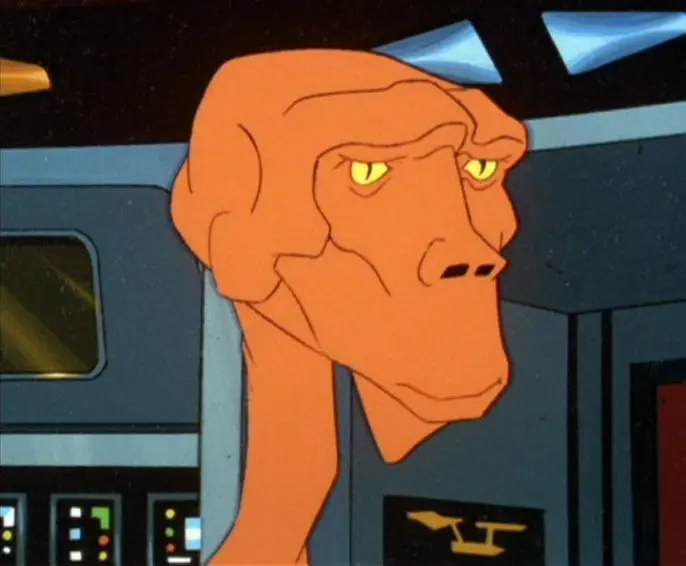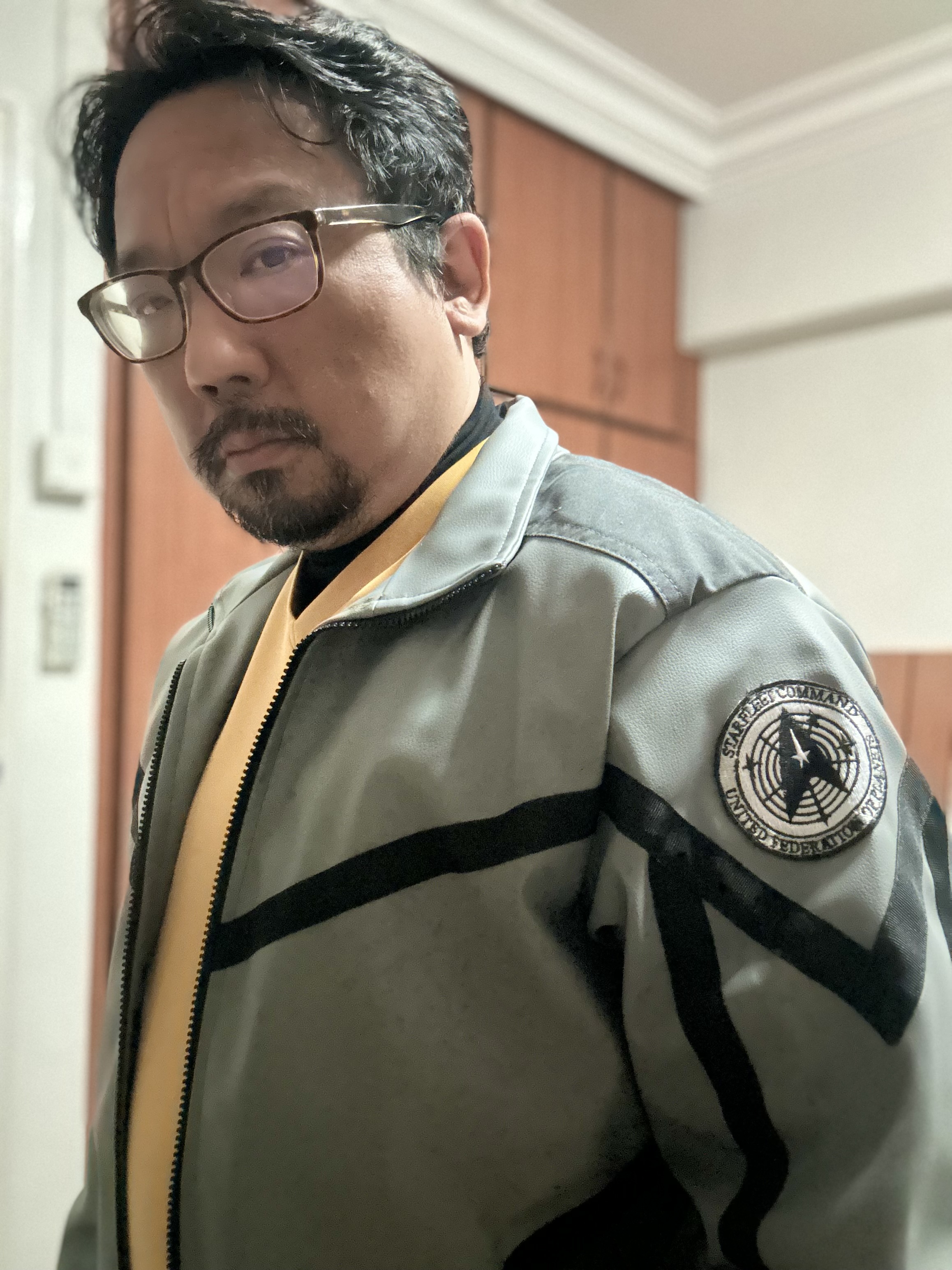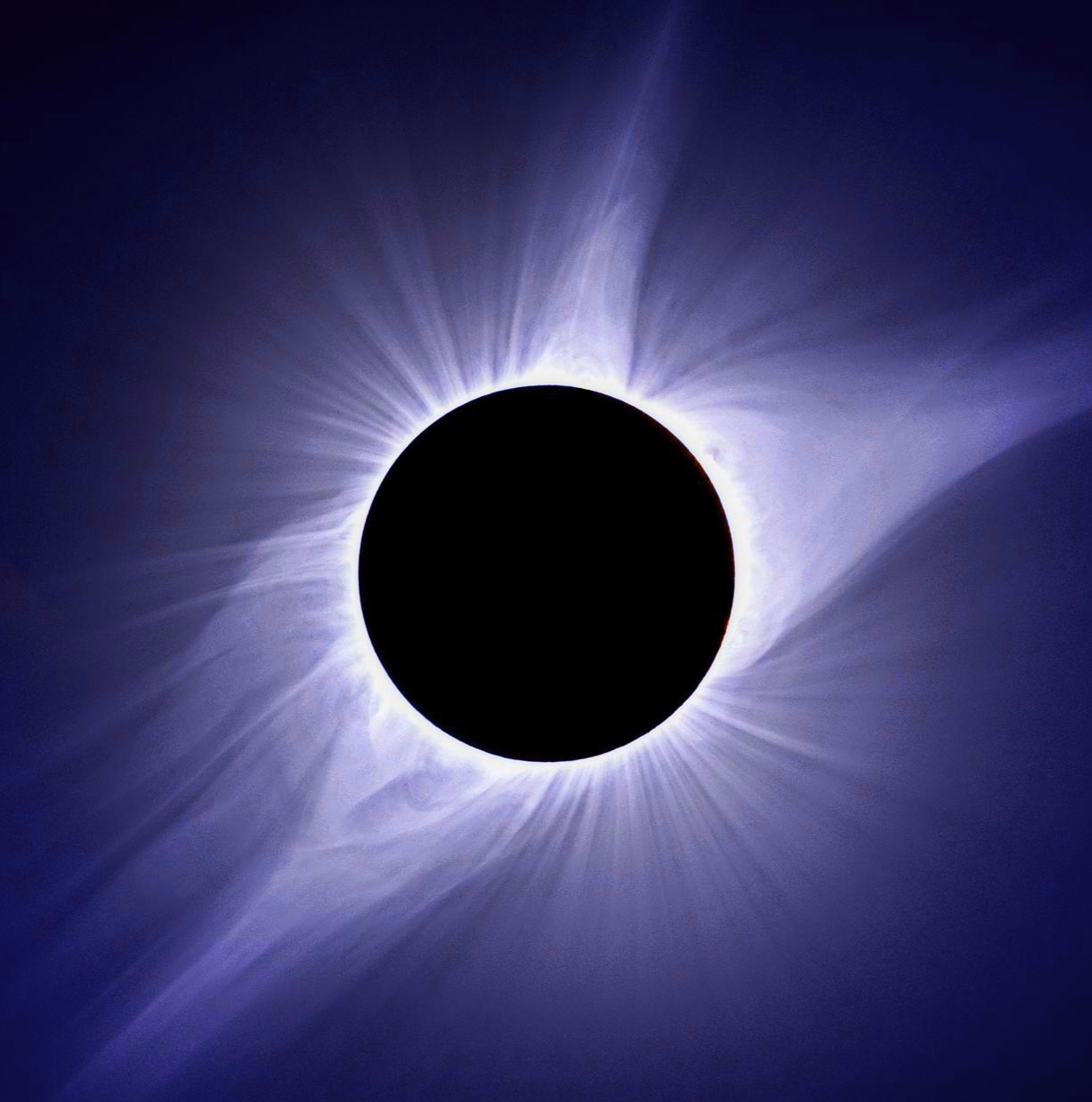For example, the Federation’s founding members (Tellarites, Andorians, Vulcans, Humans) were the subject of fan theories and “fanon” for many years before the ENT writers made it official. One of the interesting (and fun) aspects of this recent wave of series has been seeing the writers increasingly add nods to fan theories and pieces of fanon lore over the years. What are some good examples of this?
And relatedly: what’s a fan theory, or piece of fanon, that you suspect the current writers believe, even if they haven’t explicitly stated it on-screen?
I’m really happy they included Cetacean Ops in LD. I’d love to see more of them.
I also adore that we got to see it, but technically it was already canon - it was mentioned in the alternate universe bridge chatter in TNG: “Yesterday’s Enterprise” and Geordi asked if Briam “had a chance to see the dolphins yet”.
They also name-checked the rubber ducky.
Ooh now I gotta go watch Sea Quest again.
Star Trek has always talked about Starfleet and the Federation as organizations that are worthy of trust. But practically every series has had examples of badmirals and evil bureaucracy, typically with ‘our’ heroes being the ones to fight against it. From stealing the Enterprise in TSFS to The Drumhead to Section 31 to petty theft Archer to Control and the Zhat Vash to the Illyrians, being and/or fighting against a compromised or infiltrated or just simply bad Starfleet has been a long recurring theme. That’s why I loved when they turned that theme on its head in Lower Decks, with an entire episode based around fighting the evil Starfleet ended up superfluous because Starfleet was actually a fundamentally good organization and, as it turned out, the system actually works. I feel like the writers of Lower Decks are the only ones who really believe that…everybody else seems to want to scratch at the surface to see what they feel really lies beneath. Although, having said that, they ended the same season with a badmiral, so idk.
Lower Decks is such a great show. You’re spot on about it not being cynical about the Federation, etc.
I feel like some of the writers finally came around- for example In Discovery S3 the emerald chain wants to co opt the name of the Federation because the Federation is still viewed very highly.
I also appreciate that we see the motivation behind being a badmiral
I saw this pointed out in an episode reaction thread, but I’m pretty sure “Tomorrow and Tomorrow and Tomorrow” marks the first time the Federation has been explicitly, on-screen referred to as “socialist”. Fans, of course, have been calling the Federation socialist/communist for a long time. I think it started kind of crystalizing in 90’s Trek, particularly on DS9 and with Picard’s little speech about not using money in First Contact.
It’s kind of a throwaway moment in the episode, but it feels big to actually use the word? I suppose modern audiences are much more comfortable with the word than they would have been in the 90’s.
but it feels big to actually use the word?
I felt the same way. This reminded me of Discovery’s Admiral Vance openly admitting to ending capitalism being a goal of the Federation.
deleted by creator
As a fan / supporter of the “Federation is post-capitalist” theory I actually found that moment a bit disturbing in context. Pelia is ancient and, although clearly eccentric, I think we’re certainly meant to understand her as being a “wise woman,” so for her to comment that the whole post-scarcity thing may just be a “fad” to me came across as questioning more than supporting, although maybe I’m just being a bit defensive.
To be fair, she’s apparently been around more or less for the entire length of human civilization. She’s lived under lots of different economic systems, and from her point of view the Federation was basically founded yesterday. Skepticism makes sense in that context, even if she generally approves. We the audience know that by the time of TNG, DS9, and Lower Decks (I have not watched enough Discovery to know if the far-future Federation is still portrayed this way), the Federation has if anything only gotten more post-capitalist, so I don’t know that we’re meant to read her skepticism as wise. I mostly took it as her being defensive and a bit flippant.
I don’t think most people in the Federation think of it that way, I think Pelia (somewhat derogatorily) thinks of it that way.
The most recent and significant canonizations of fanon that come to mind is the use of Geoffrey Mandel’s Star Charts as a basis for the charts we see in the show, and the NX-01 refit finally showing up in PIC. Also, the use of the Black Fleet from The Final Reflection in DIS and the importation of Una’s name and her origin as an Illyrian (although tweaked) from the novels. Also the importation of David Goodman’s wording of the Prime Directive from Federation: The First 150 Years in PRO: “First Con-Tact”.
The use of Diane Duane’s terminology for Vulcan emotional suppression (arie’mnu) also makes me suspect that everything she came up with about Vulcan logic like cthia in her books is in the back of the writers’ minds - especially Kristen Byers, just like they influenced the Reeves-Stevens when they were writing ENT. I wouldn’t be surprised if eventually some of her Romulan stuff made it in as well.
@khaosworks not sure those count as fanon since they appeared in official Paramount authorized material.
Fair enough - but most completely fan created stuff as opposed to licensed doesn’t have that wide a distribution so very few things rise to the level where it’s been accepted enough in the fan consciousness to be fanon. Fewer still get converted into canon. Most of the time it’s contradicted.
I suppose one example would be Ni’Var, which had its origins solely in fanzines. But that doesn’t quite work either since it wasn’t a widely known concept until DIS resurrected it.
The only thing I can think off off-hand that’s widely accepted is that the Klingons got cloaking technology from the Romulans in exchange for Klingon ship designs. But that’s been contradicted to a degree too.
I think that you could consider everything from fanzines and fanfic through licensing to what gets onscreen as a large ongoing dialogue.
Some cool things drift around for a long time, so it’s not even clear if they originated in specific tie-in fiction unless the authors themselves identify who came up with a name - as we can do with Number One being given the name Una.
The preponderance of EPs at this point are fans who bring their own longstanding ideas of canon, but they’re to some extent influenced by the ongoing fan and licensing dialogue.
In some cases, especially with Goldsman who was deep in the fanzine debates of the 70s, I get the idea that he’s intentionally working to counter longstanding fan headcanon or interpretations that he sees as a barrier for new generations to accept TOS.
When we get to tie-in fiction, the writers of licenced products are in most cases also fans, and, like Goldsman, have been immersed in and speculating on past canon for decades themselves. And then the younger television writers have clearly been reading some of the tie-in fiction or playing the games. Or they themselves have been written them, or at least their consultants.
As a Treklit fan, I am seeing that the new shows increasingly draw on the licenced tie-in writing, both books and comics as well as STO.
Discovery season two pulled in the S31 Control AI concept. Picard season three brought STO ships to television, but also paralleled and wove in elements of the the TNG characters from the Relaunch books.
I don’t think it’s reasonable to attribute it simply to Beyer’s influence as a tie-in author who’s now an in-house canon anchor and writer on all the live-action shows. That’s part of it, as are David Mack’s contributions on Lower Decks and Prodigy.
Prodigy has brought the Brikars (originally created by Peter David for the YA Academy books) into onscreen canon. That’s probably my favourite ‘canonization.’ But Mack has also encouraged a restoration of noncommissioned officer roles and several other subtle ‘solutions’ out of Treklit.
Anyway, its an interesting thing to trace.
This is an excellent comment, and honestly should be visible higher up. You should make a top-level post out of this!
Thanks for the encouragement.
I will do that. I might wish to add another example or two.
That the temporal cold war was responsible for certain changes in canon, such as the Eugenics War happening in the 21st century rather than the 1990’s. That’s been a popular theory on Daystrom since long before last week’s SNW.
That the warp drive functions through the expansion and contraction of space.
There were many possible fan explanations for how TOS’ warp drive would work, with Miguel Alcubierre developing the Alcubierre drive as his own attempt at making warp drive real, but the in-show explanations never really delved beyond a “the warp engines make the ship go fast to a certain point, but too much, and they fly off the ship”.
TNG’s explanation only amounted to saying they worked by pushing on subspace, which pushed back and propelled the ship, like a detergent-powered paper boat being dragged along, and can be responsible for subspace funkiness depending on how you use it.
DS9 seemed to imply that they altered the mass of the ship in some way, in conjunction with the deflector systems. TNG only implied that the warp field could alter the laws of physics within its area of effect.
But at some point the “contraction and expansion of space” explanation for how a warp field works seems to have stuck, sometime after Enterprise(?). Ask any random Star Trek person about how warp drive works, and they’ll give a similar explanation. The writers almost certainly operate under similar beliefs.
I don’t think so. Nothing in the new series explicitly contradicts the idea that warp drive functions by lowering the inertial mass of the ship. You may ask fans and they may answer, but that doesn’t make them right. And until they come right out and say that it’s the Alcubierre Drive, I don’t buy it because we still see inertial effects being felt, which we wouldn’t if it was an Alcubierre metric driving the ship.
I wrote a post in old Daystrom aying out the evidence why the two drives are different. I’ll repost it here to see what comes out of it.
Having Dr Erin MacDonald a Voyager fan and astrophysicist as the franchise’s science consultant is locking in the Alcubierre-like warp theory as a backdrop across the franchise at this point.
I find it interesting, going back to the warp-like FTL of MGM’s Forbidden Planet, that each of the crew had to stand in a columnar a suspension device to survive the transit. Given how much Roddenberry pulled from Forbidden Planet for TOS, it’s interesting that he decided that we had to be able to see the crew functional during FTL travel. George Lucas, who also drew heavily on Forbidden Planet for Star Wars, went the opposite direction and just had the hyperdrive act as a kind of jump.
Seven being gay (or at least not straight) is a good one- I think it’s something a lot of people had as a bit of a fan theory but it’s something you would never see on Berman Trek.
The use of “warp bubble” as a synonym for “warp field” is a piece of fanon that only popped up in a series with the first season of Strange New Worlds.
I find this one troublesome, as this tends to be a stepping stone to treating the warp drive as an Alcubierre drive, when historically it hasn’t really been portrayed that way.
Is that true? I could swear I have a memory of Geordi describing it as a bubble at some point on TNG. Then again I also spent a lot of time looking through Rick Sternbach and Dennis Okuda’s TNG Technical Manual back in the day, so maybe I just absorbed it and incorporated it from there.
I believe the only “warp bubble” that we see in TNG is the anomaly that Wesley creates, and Bev gets trapped in, in “Remember Me”.
Warp bubbles are named in “Interface” as a type of subspace deformation.
In both cases, they’re unique phenomena.
When the Dauntless is chasing the Protostar in PRO: “Mindwalk”, Tysess gives the order to merge the “warp bubbles” of both ships, the first time we hear the term being applied to a warp field.
When the Enterprise is unable to go to warp in SNW: “The Elysian Kingdom”, Spock theorizes the nebula may be affecting the ship’s ability to create a “static warp bubble”, and from context he’s talking about the warp field generated by the nacelles.
Prior to this, the terms “warp bubbles” and “warp fields” were not used interchangeably, the former being a “static warp bubble”, previously established as a toroidal, non-propulsive subspace field which once trapped Beverly Crusher in a pocket universe (TNG: “Remember Me”) rather than the field used to enable warp speed travel.
The warp effect in Beyond is the warp effect for the Alcubierre drive. Seeing as it’s basically the only plausible way to have an FTL system I’m fine with treating it that way since the ship practically moves at the speed of the plot so how it actually moves doesn’t really matter
In the new shows, they actually call the mirror universe the mirror universe, which is something that they don’t do in previous appearances- in DS9 they always call it the alternate universe.
CaptainAdmiral janeway and captain chakotay. I was so excited about what’s in store for them but now….I’m biased being JC shipper since 1995
Bashir and O’Brien did not just have what the official startrek.com website refers to as a “homosocial” relationship.
I think the writers did kind of start off with a bromance, and then the
slashfic writersfans got a hold of it, and then this game of “chicken” ensued where the innuendo got more and more explicit.There are many, many such moments: one comes from Field of Fire
O’BRIEN: The kid’s a born helmsman. BASHIR: And so say all of us. ALL: Hear, hear. ILARIO: Thanks. I’m just glad to be here. O’BRIEN: It’s the best posting in the galaxy. BASHIR: If there’s anything you want, anything at all, just ask. ILARIO: Well, there is one thing. O’BRIEN: Name it. ILARIO: Next time you two go to the holosuite, I’d like to come along. O’BRIEN: Sorry. BASHIR: Can’t be done. O’BRIEN: No, it’s out of the question. BASHIR: It’s impossible. KIRA: Don’t take it personally. They’re very serious about their leisure activities. BASHIR: It’s a good way to relieve stress. O’BRIEN: Yeah, I highly recommend it. BASHIR: Just not with us. O’BRIEN: No. You know, when you have a holosuite visit, it’s sort of a personal experience. BASHIR: He’s very particular about anybody seeing him in his coonskin cap. You understand. ILARIO: I suppose. QUARK: Gentlemen, your holosuite is ready. BASHIR: Terrific. Now if there’s anything else you need? O’BRIEN: Just let us know. (O’Brien and Bashir go up the stairs) ILARIO: Have you ever gone to the holosuite with them? KIRA: Me? Never. EZRI: I know when I’m not wanted.
The moment is even odder because we know from episodes like A Simple Investigation and Badda Bing Badda Bang that O’Brien and Bashir did go to the holosuites with others, including Jadzia Dax, for fun – but when they went alone, together, they did not want anyone else to be there.
…But to me the real finishing piece is from Extreme Measures:
O’BRIEN: I should’ve left a note for Keiko to let her what we were planning. BASHIR: Why worry her? O’BRIEN: No, I want her and the kids to understand why I had to do this. BASHIR: She’ll understand. She’ll know you did it for me. O’BRIEN: That’s what’ll upset her the most. She always said I liked you more than I liked her. BASHIR: That’s ridiculous. O’BRIEN: Right. Yeah. BASHIR: Well maybe you do, a bit more. O’BRIEN: What? Are you crazy? She’s my wife. I love her. BASHIR: Of course you love her. She’s your wife. O’BRIEN: Yeah. BASHIR: I’m just saying maybe you like me a bit more, that’s all. O’BRIEN: I do not. BASHIR: You spend more time with me. O’BRIEN: We work together. BASHIR: We have more in common. O’BRIEN: Julian, you are starting to annoy me. BASHIR: Darts, racquetball, Vic’s lounge, the Alamo. Need I go on? O’BRIEN: I love my wife. BASHIR: And I love Ezri. Passionately. O’BRIEN: You do? BASHIR: Yes. O’BRIEN: Have you told her? BASHIR: Not yet. But I will. O’BRIEN: Oh, yeah? When? BASHIR: When I’m ready. It’s just that I like you a bit more. See? There, I’ve admitted it. O’BRIEN: Yeah, well, I love my wife.
The dialogue doesn’t even really do it justice, I don’t see how you can watch that scene and conclude something other than that they had a romantic relationship.








